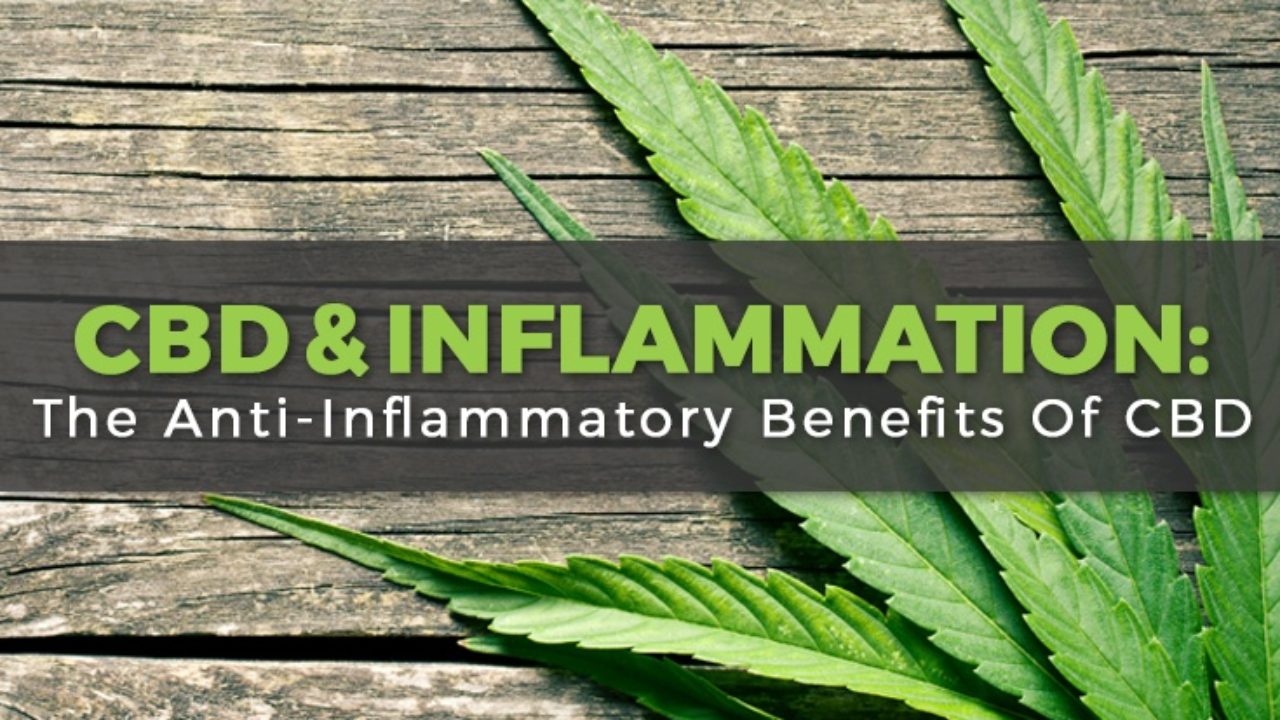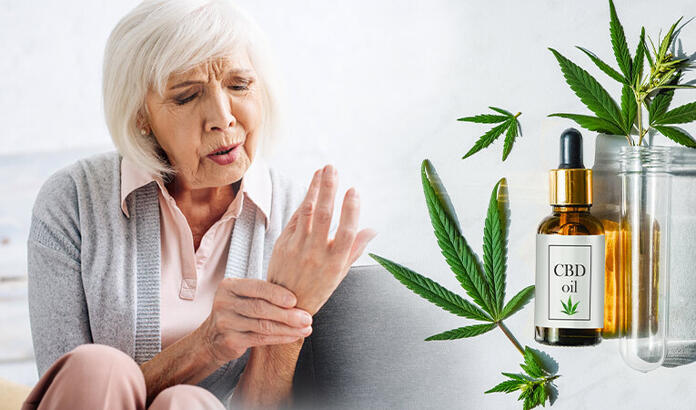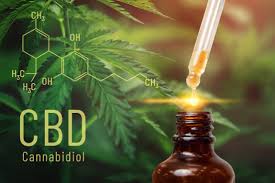What are CBD tinctures and their popularity?
CBD tinctures have recently gained significant popularity in wellness and natural remedies. With their versatile applications and potential health benefits, it’s no wonder that more and more people are turning to these potent herbal extracts.
CBD, short for cannabidiol, is a naturally occurring compound in the cannabis plant. Unlike its well-known counterpart, THC, CBD has no psychoactive effects, meaning it won’t get you high. This quality and its potential health benefits have propelled CBD into the mainstream.
CBD tinctures are one of the most common and convenient forms of consuming CBD. They consist of a concentrated solution of CBD extract mixed with a carrier oil, such as coconut or hemp seed oil. This combination allows for easy administration and absorption of the beneficial compounds.
The popularity of CBD tinctures can be attributed to their versatility and effectiveness. They can be taken orally by placing a few drops under the tongue or added to food and beverages for a more enjoyable experience. Furthermore, the concentration of CBD in tinctures can vary, allowing users to choose the potency that best suits their needs.
CBD tinctures offer a natural and holistic approach to wellness, whether seeking pain relief, anxiety management, or improved sleep. Their non-intoxicating nature and potential health benefits have made them a go-to option for individuals looking to enhance their well-being.
The following sections will delve deeper into CBD tinctures, exploring their composition, benefits, usage guidelines, and more. So, grab a cup of tea, sit back, and let’s unravel the mysteries of CBD tinctures together.
What is CBD?
CBD, short for cannabidiol, is a naturally occurring compound in the cannabis plant. It is one of the many cannabinoids present in the plant, alongside THC (tetrahydrocannabinol). While THC is known for its psychoactive effects, CBD does not cause a “high” sensation. Instead, it offers a range of potential health benefits that have made it increasingly popular in recent years.
The uses of CBD are diverse and continue to be explored through ongoing research. People have reported finding relief from various conditions such as pain, anxiety, insomnia, and inflammation using CBD products. The compound interacts with the body’s endocannabinoid system, a complex network of receptors and neurotransmitters that helps regulate various physiological processes.
CBD can be found in various forms, including oils, capsules, edibles, gummies, and topical creams. Each form offers its unique benefits and methods of administration. CBD oils are one of the most common and versatile forms, allowing for easy absorption and customizable dosing.
It’s important to note that while CBD shows promise in many areas, it is not a miracle cure. It should be used as a complementary approach to overall wellness and as part of a holistic lifestyle. As with any supplement or medication, it’s advisable to consult a healthcare professional before incorporating CBD into your routine, especially if you are taking any medications or have any underlying health conditions.
In the following sections, we will delve deeper into CBD tinctures, exploring their composition, benefits, usage guidelines, and how to choose the right one for your needs. So, let’s embark on this journey together and unravel the mysteries of CBD tinctures!
What are CBD Tinctures?
When exploring the diverse world of CBD products, CBD tinctures stand out as a popular and versatile option. But what exactly are CBD tinctures? Let’s dive in and discover their definition, composition, and how they are made.
Definition and Composition of CBD Tinctures
A CBD tincture is a concentrated herbal extract that combines cannabidiol (CBD), a non-intoxicating compound derived from the hemp plant, with a carrier oil, such as coconut or hemp seed oil. This unique blend allows for easy and efficient absorption of CBD into the body.
CBD tinctures come in various forms, including full-spectrum, broad-spectrum, and CBD isolate. Full-spectrum tinctures contain CBD and other beneficial compounds found in the hemp plant, including terpenes, flavonoids, and a trace amount of tetrahydrocannabinol (THC), the psychoactive component of cannabis. On the other hand, broad-spectrum tinctures undergo an additional extraction process to remove any detectable THC while preserving the other beneficial compounds. CBD isolate tinctures contain only pure CBD, devoid of any other compounds.
How They Are Made
Making CBD tinctures involves extracting CBD from the hemp plant using various methods, such as CO2 or solvent extraction. CO2 extraction is considered one of the cleanest and most effective methods, as it utilizes carbon dioxide under specific temperatures and pressures to isolate CBD and other desirable compounds. This method ensures a high-quality and potent CBD extract.
Once the CBD extract is obtained, it is combined with a carrier oil to create the final product: the CBD tincture. The carrier oil dilutes the CBD extract and enhances its absorption and bioavailability. The resulting tincture is typically packaged in a dropper bottle, allowing for precise dosing and easy administration.
CBD tinctures can be flavored or unflavored, offering various options to suit different tastes and preferences. Some popular flavors include mint, citrus, and berry, adding a pleasant twist to the natural hemp taste.
Now that we have explored CBD tinctures’ definition, composition, and manufacturing process, we can move on to discovering their numerous benefits. Whether you’re seeking pain relief, stress management, or a good night’s sleep, CBD tinctures have the potential to become your new go-to wellness companion. So, let’s uncover the remarkable benefits of CBD tinctures in the next section.
Benefits of CBD Tinctures
CBD tinctures have gained immense popularity recently due to their wide potential benefits. Let’s explore some of the key advantages that these tinctures offer:
Pain Relief
One of the most sought-after benefits of CBD tinctures is their ability to alleviate pain. Whether it’s chronic pain caused by conditions like arthritis or acute pain resulting from injuries, CBD has shown promise in providing relief. CBD may help reduce inflammation and modulate pain perception by interacting with the body’s endocannabinoid system. Many individuals have found relief from conditions that cause discomfort and hinder their daily lives.
Anxiety and Stress Management
In today’s fast-paced world, it’s no surprise that anxiety and stress have become prevalent issues. CBD tinctures offer a natural solution for managing these conditions. CBD interacts with receptors in the brain that regulate mood and emotional responses, potentially helping to reduce anxiety and promote relaxation. This can particularly benefit individuals with generalized anxiety disorder, social anxiety, or stress-related conditions.
Sleep Aid
Quality sleep is crucial for overall well-being, but many people struggle with insomnia and other sleep disorders. CBD tinctures may offer a natural alternative to traditional sleep aids. Research suggests CBD may help regulate sleep patterns by addressing the underlying causes of sleep disturbances, such as anxiety and chronic pain. CBD tinctures can improve sleep quality and quantity by promoting relaxation and reducing discomfort, allowing individuals to wake up refreshed and rejuvenated.
Potential Health Benefits
Besides the benefits mentioned above, CBD tinctures have also been associated with various potential health benefits. While research is ongoing, preliminary studies suggest CBD may have anti-inflammatory properties, making it beneficial for arthritis and inflammatory bowel disease. Additionally, CBD has shown promise in aiding neurological disorders like epilepsy and multiple sclerosis.
It’s important to note that individual experiences may vary, and CBD tinctures should not be considered a cure-all. However, the growing body of research and countless anecdotal reports indicate that these tinctures can potentially improve many individuals’ well-being.
The next section will discuss using CBD tinctures effectively, including dosage guidelines, administration methods, and potential side effects and precautions.
Want to learn more about the potential benefits of CBD? Check out CBD Health Benefits for an in-depth exploration of its various applications.
How to Use CBD Tinctures
Once you have your CBD tincture, you may wonder how to use it. Don’t worry. We’ve got you covered. This section will discuss dosage guidelines, administration methods, and potential side effects and precautions to remember.
Dosage Guidelines
When it comes to CBD tinctures, finding the right dosage is crucial for optimal results. However, determining the ideal dosage can be a trial-and-error process, as it varies from person to person. It is always best to start with a low dose and gradually increase it until you achieve the desired effects.
Many experts recommend starting with 0.25 milliliters (ml) or 5-10 drops of the tincture, taken sublingually (under the tongue). Hold the liquid under your tongue for 30 seconds to allow maximum absorption before swallowing. This method allows the CBD to enter your bloodstream more quickly, resulting in faster effects.
If you’re new to CBD and unsure about the appropriate dosage, it is advisable to consult a healthcare professional knowledgeable about CBD and its potential benefits. They can provide personalized guidance based on your specific needs and health condition.
Administration Methods
CBD tinctures offer versatile administration methods, allowing you to choose a method that suits your preferences and needs. Apart from the sublingual method mentioned earlier, you can add tincture to your favorite beverages or food. Remember that adding it to hot liquids may diminish its effectiveness, so opting for cool or room temperature options is best.
Additionally, some individuals prefer mixing their CBD tincture with carrier oils, such as coconut oil or olive oil, to create topical solutions for targeted applications. This allows CBD’s benefits to be directly absorbed through the skin.
Potential Side Effects and Precautions
While CBD is generally well-tolerated, it’s important to be aware of potential side effects and take necessary precautions. Common side effects may include dry mouth, drowsiness, and changes in appetite. These effects are typically mild and temporary, but if you experience discomfort, you should adjust your dosage accordingly.
It’s worth noting that CBD can interact with certain medications, so if you are currently taking any prescription medications, it’s essential to consult with your healthcare provider before incorporating CBD into your routine. They can guide potential interactions and help ensure your safety.
Everyone’s body is unique, and what works for one person may not work for another. It’s essential to listen to your body and pay attention to how you feel when using CBD tinctures. By starting with a low dose, experimenting with different administration methods, and closely monitoring your body’s response, you’ll be able to find the right CBD tincture routine that suits your needs.
Now that you know how to use CBD tinctures effectively and responsibly, let’s move on to the next section, where we’ll explore choosing the right one.
Choosing the Right CBD Tincture
When selecting the perfect CBD tincture for your needs, there are several factors to consider. With the increasing popularity of CBD products, the market is flooded with various options, making the decision-making process a bit overwhelming. However, by understanding a few key elements, you can confidently navigate the sea of choices and find the ideal CBD tincture that suits your requirements.
Factors to Consider
One of the first factors to consider is the source of the CBD used in the tincture. CBD can be derived from both hemp and marijuana plants, with hemp being the more commonly used source due to its high CBD content and low THC levels. If you’re looking for a THC-free option or live in a state where marijuana is not legal, CBD derived from hemp would be your best bet.
Next, assessing the extraction method used to obtain the CBD is important. The most common methods include CO2 extraction, ethanol extraction, and olive oil extraction. CO2 extraction is the gold standard, yielding a pure and potent CBD extract. Ethanol extraction is also widely used and produces high-quality CBD, while olive oil extraction is a simpler method that can be done at home but may result in a less concentrated product.
Reading Product Labels
Reading and understanding product labels is crucial when choosing a CBD tincture. Labels provide valuable information about the product’s ingredients, potency, and any additional additives. Look for labels that clearly state the CBD content per serving, as this will help you determine the strength of the tincture. Additionally, check for third-party lab testing results, which ensure the product’s quality and purity. These lab reports should be easily accessible and provide information on the cannabinoid profile, including the levels of THC.
Understanding CBD Potency
CBD potency refers to the concentration of CBD in the tincture. This is typically expressed in milligrams (mg) or as a percentage. The potency you choose will depend on your individual needs and the desired effects. A lower potency tincture may suffice for beginners or those with mild symptoms. However, if you require higher doses or have more severe symptoms, a higher-potency tincture would be more appropriate. It’s always advisable to start with a lower potency and gradually increase as needed.
To help you make an informed decision, some manufacturers provide a potency guide on their product labels. This guide suggests the appropriate dosage for different levels of potency, making it easier for you to find the right CBD tincture for your specific needs.
In conclusion, choosing the right CBD tincture involves considering factors such as the source of CBD, the extraction method used, reading product labels, and understanding CBD potency. By taking these factors into account, you can confidently select a CBD tincture that aligns with your preferences and offers the potential health benefits you seek.
Now that you have a better understanding of how to choose the right CBD tincture, let’s move on to the frequently asked questions about CBD and its usage.
Frequently Asked Questions
Is CBD legal?
The legal status of CBD has been a topic of much discussion and confusion. CBD, or cannabidiol, is a compound derived from the cannabis plant. While the legal status of cannabis varies from country to country, CBD itself is legal in many places.
In the United States, for example, the 2018 Farm Bill legalized hemp-derived CBD products with a THC content of 0.3% or less. It’s important to note that THC is the psychoactive compound in cannabis that produces a “high”. CBD, on the other hand, does not have psychoactive effects and will not make you high.
However, it’s essential to check the specific laws and regulations in your country or state to ensure you are complying with the legal requirements. CBD legality is a complex matter, and it’s always best to stay informed.
Will CBD tinctures make me high?
No, CBD tinctures will not make you high. As mentioned earlier, CBD is non-psychoactive, meaning it does not produce the euphoric sensations associated with THC. The CBD and THC compounds have different effects on the body and interact with different receptors in the endocannabinoid system.
CBD tinctures are made using a process that extracts CBD from the cannabis plant and combines it with a carrier oil, such as coconut or hemp seed oil. This extraction method ensures that the final product contains a high concentration of CBD and minimal THC, if any at all. Therefore, you can enjoy the potential benefits of CBD without experiencing any mind-altering effects.
Can I use CBD tinctures while taking other medications?
If you are currently taking other medications, it’s crucial to consult with your healthcare provider before incorporating CBD tinctures into your routine. CBD has the potential to interact with certain medications, especially those that are metabolized by the liver.
CBD can inhibit the activity of certain enzymes in the liver, which are responsible for breaking down medications. This can affect the way your body processes these medications, potentially leading to unwanted side effects or altered efficacy.
To ensure your safety and avoid any potential interactions, it’s essential to have an open and honest conversation with your healthcare provider about your intentions to use CBD tinctures. They can provide personalized advice based on your specific medical history and the medications you are taking.
Remember, your health and well-being should always be a top priority, and seeking professional guidance is the best way to ensure you are making informed decisions regarding your medication regimen.
Now that we’ve addressed some common questions about CBD tinctures, let’s move on to the concluding section to wrap up our comprehensive guide.
Conclusion
In conclusion, CBD tinctures have gained immense popularity in recent years due to their potential health benefits and versatile usage. As a natural remedy derived from the hemp plant, CBD has shown promising results in managing various conditions such as pain, anxiety, and sleep disorders. With its non-intoxicating nature and minimal side effects, it has become a preferred choice for individuals seeking alternative solutions.
CBD tinctures are concentrated extracts infused with high-quality CBD oil. They are made through a meticulous extraction process that ensures the preservation of the beneficial compounds found in the hemp plant. These tinctures offer a convenient and discreet way to incorporate CBD into one’s daily routine.
One of the key advantages of CBD tinctures is their potential to provide pain relief. Whether it’s chronic pain, muscle soreness, or inflammation, many individuals have reported a reduction in discomfort after using CBD tinctures. Additionally, CBD tinctures have shown promise in managing anxiety and stress, promoting a sense of calm and relaxation without the psychoactive effects associated with THC.
Furthermore, CBD tinctures have been found to aid in improving sleep quality. Many people struggle with insomnia or other sleep disorders, and CBD tinctures can help regulate sleep patterns and promote a restful night’s sleep.
It is important to note that while CBD tinctures offer numerous potential health benefits, it is crucial to consult with a healthcare professional before incorporating them into your routine, especially if you are currently taking any medications. They can provide guidance on dosage and any potential interactions.
When choosing the right CBD tincture, it is essential to consider factors such as the source of the CBD, its potency, and the presence of any additional ingredients. Reading product labels and understanding CBD potency can help you make an informed decision and find the most suitable product for your needs.
In conclusion, CBD tinctures have revolutionized the way people approach natural wellness. With their wide range of potential benefits and ease of use, they have become a popular choice for individuals seeking alternative remedies. However, it is important to remember that further CBD research is still ongoing, and individual experiences may vary.
If you’re interested in exploring other CBD products, such as CBD gummies, CBD capsules, or CBD edibles, be sure to check out our website for more information. We offer a wide range of CBD products that cater to various preferences and needs.
Remember, as with any supplement or wellness product, it’s always a good idea to do your own research and consult with a healthcare professional to determine if CBD tinctures are right for you. Your journey towards holistic well-being begins with making informed choices, and CBD tinctures can be a valuable addition to your wellness routine.
Is CBD legal? Yes, CBD derived from hemp is legal in many countries, including the United States. However, it’s important to be aware of the specific laws and regulations in your jurisdiction.
Will CBD tinctures make me high? No, CBD tinctures do not contain the psychoactive compound THC, which is responsible for the “high” associated with marijuana. As a result, CBD tinctures do not produce intoxicating effects.
Can I use CBD tinctures while taking other medications? It’s crucial to consult with your healthcare provider before using CBD tinctures if you are currently taking other medications. They can provide personalized advice and guidance based on your individual circumstances.
Thank you for joining us on this informative journey into the world of CBD tinctures. We hope this article has provided you with valuable insights and empowered you to make informed decisions about your health and wellness. Stay tuned for more articles on CBD and its fascinating potential!
*[CBD]: Cannabidiol
*[THC]: Tetrahydrocannabinol




